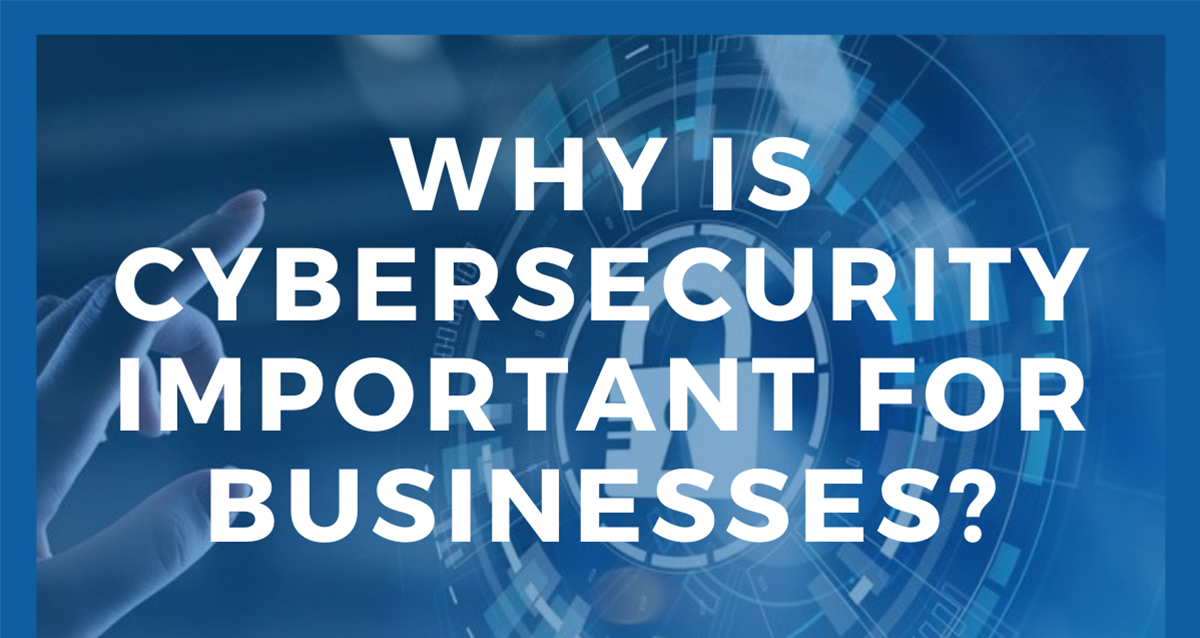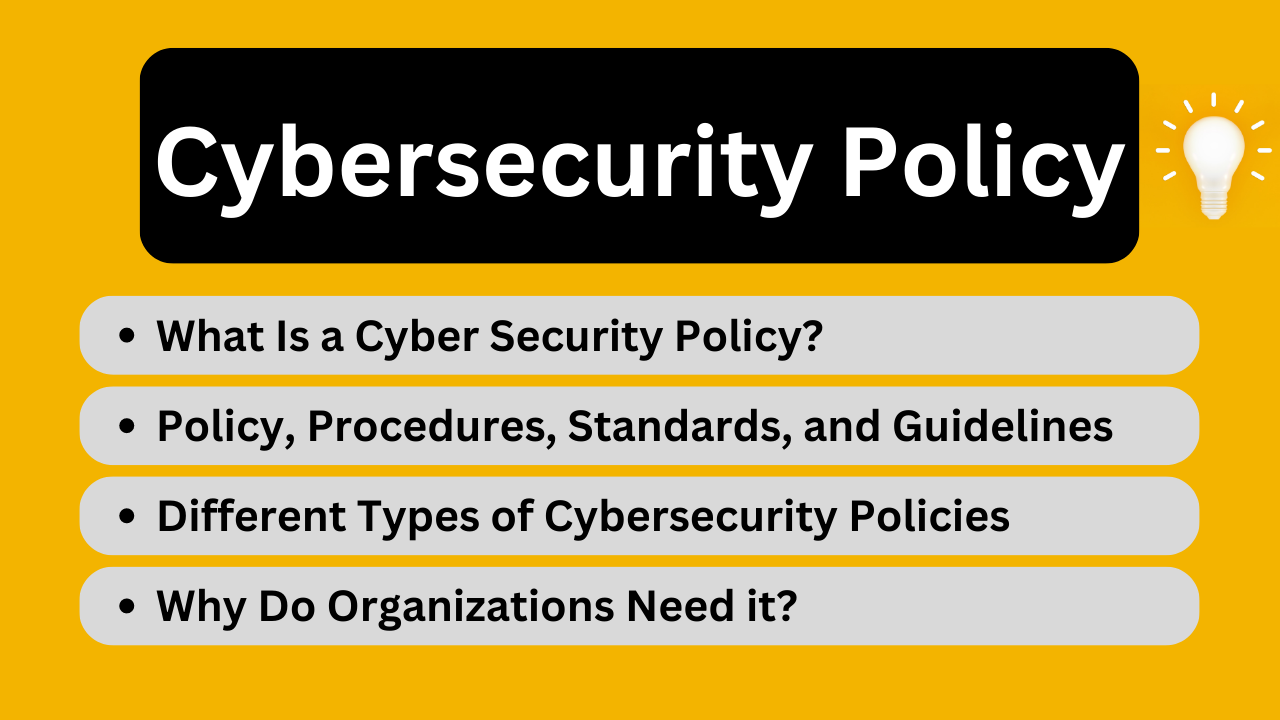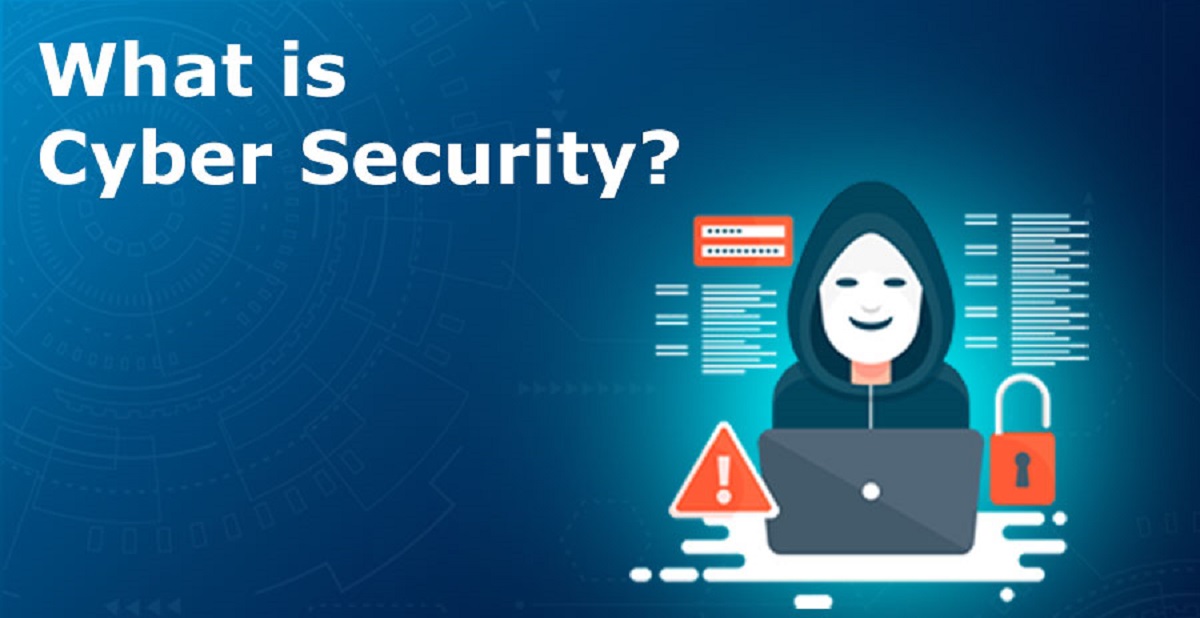Introduction
Cybersecurity has become an increasingly critical concern for businesses of all sizes and industries in today’s digital age. As technology advances and more business operations rely on digital systems, the risk of cyber threats and attacks continues to grow. It is now more important than ever for businesses to prioritize cybersecurity measures to protect their sensitive data and maintain the trust of their customers.
In the interconnected world we live in, businesses store and process vast amounts of confidential information, from financial records and trade secrets to personal and sensitive customer data. This data is a valuable target for cybercriminals who seek to exploit vulnerabilities and gain unauthorized access. Without robust cybersecurity measures in place, businesses leave themselves vulnerable to data breaches, hacking attempts, and various other cyber threats.
A successful cyber attack can have devastating consequences for a business. Not only can it result in significant financial loss, but it can also cause damage to a company’s reputation. The fallout from a cyber attack can include loss of customer trust, regulatory fines, legal consequences, and even business closure in extreme cases. Therefore, implementing effective cybersecurity measures is crucial to protect businesses from these potential risks.
Furthermore, businesses have a legal and ethical responsibility to protect the information of their customers. With the increasing number of data protection regulations, such as the General Data Protection Regulation (GDPR) and the California Consumer Privacy Act (CCPA), businesses must ensure they comply with these laws to avoid hefty fines and penalties. Implementing strong cybersecurity measures is a fundamental aspect of meeting these obligations and safeguarding customer information.
In addition to the legal implications, cybersecurity is also essential for maintaining business continuity. Cyber attacks can result in system downtime, data loss, and productivity disruptions. This can have a significant impact on operations, leading to financial losses and negatively affecting customer satisfaction. By investing in cybersecurity measures, businesses can minimize the risk of such incidents and ensure smooth operations, ultimately protecting their bottom line.
Overall, cybersecurity is vital for businesses in today’s digital landscape. It is not a luxury but a necessity. Implementing strong cybersecurity measures helps to protect sensitive data, safeguard customer information, prevent financial loss, maintain a good reputation, comply with regulations, minimize downtime, build trust with customers, and avoid legal consequences. In the following sections, we will delve deeper into these aspects, exploring why cybersecurity is important for businesses and how it can contribute to their overall success.
Protecting Sensitive Data
One of the primary reasons why cybersecurity is crucial for businesses is to protect their sensitive data. Every business collects and stores valuable information, such as financial records, trade secrets, intellectual property, and proprietary data. This data is the lifeblood of the organization and is vital for its success. However, it also makes businesses an attractive target for cybercriminals.
A successful cyber attack can lead to the theft, destruction, or compromise of sensitive data, which can have severe consequences for a business. Stolen financial records can result in fraudulent transactions, causing significant financial loss. Trade secrets and intellectual property theft can lead to lost competitive advantage, diminished market share, and even the collapse of a business.
In addition to the direct financial impact, losing sensitive data can create a domino effect of negative consequences. Confidential customer information that falls into the wrong hands can be used for identity theft, fraud, or sold on the dark web, leading to financial and reputational damage both for the customer and the business. Moreover, the breach may result in legal and regulatory consequences, including fines and legal actions.
Implementing robust cybersecurity measures is essential to protect sensitive data from unauthorized access, theft, and manipulation. This includes encrypting data, implementing strong access controls, regularly updating security systems and software, and conducting regular security assessments and audits. By safeguarding sensitive data, businesses can maintain the trust of their customers, protect their reputation, and avoid the devastating consequences of a data breach.
Safeguarding Customer Information
In today’s digital age, customers entrust businesses with their personal and sensitive information when making purchases, signing up for services, or interacting online. This includes details such as names, addresses, payment information, and even social security numbers. As custodians of this information, businesses have a responsibility to safeguard it from cyber threats and ensure its privacy and security.
A data breach or unauthorized access to customer information can have severe consequences for both the individuals affected and the business itself. Customers may suffer financial losses, be victims of identity theft, or experience compromised personal privacy. This can result in damaged customer trust, leading to a loss of business and a negative impact on the company’s reputation.
To protect customer information, businesses must implement robust cybersecurity measures that prevent unauthorized access and secure transmission, storage, and processing of data. Implementing strong encryption protocols, secure payment gateways, and multi-factor authentication systems are essential elements of safeguarding customer information. Regular security assessments, intrusion detection systems, and incident response plans should also be in place to detect and mitigate any potential breaches.
Beyond the financial and reputational impacts, protecting customer information is a legal requirement for businesses. Many countries and regions have enacted data protection laws and regulations, such as the General Data Protection Regulation (GDPR) in the European Union and the Health Insurance Portability and Accountability Act (HIPAA) in the United States. Non-compliance with these regulations can lead to substantial fines and legal consequences.
By prioritizing cybersecurity and diligently safeguarding customer information, businesses demonstrate their commitment to customer privacy and build trust with their clientele. Customers are more likely to transact with businesses that they trust to protect their sensitive information. By taking proactive steps to ensure the security of customer data, businesses can not only meet their legal obligations but also gain a competitive advantage in the market.
Preventing Financial Loss
Effective cybersecurity measures play a crucial role in preventing financial loss for businesses. Cyber attacks can have significant financial implications, causing direct monetary losses and incurring additional costs for remediation and recovery.
One of the most common cyber threats businesses face is ransomware attacks. In such attacks, hackers encrypt a company’s data and demand a ransom in exchange for its release. These attacks not only disrupt business operations but can also result in substantial financial losses if the ransom is paid or if the business is unable to recover the encrypted data.
Financial fraud is another prevalent cyber threat. Hackers may gain unauthorized access to a business’s financial systems, manipulate transactions, or steal funds through phishing scams or compromised email accounts. Such incidents can result in significant financial losses for the targeted business, its partners, or even its customers.
Businesses that suffer data breaches also face financial consequences. The costs associated with investigating and remediating a breach, notifying affected parties, providing credit monitoring services, and potentially facing legal actions or regulatory fines can be substantial. Additionally, the loss of customer trust and potential decline in sales can further impact the financial position of the business.
By implementing robust cybersecurity measures, businesses can protect their financial resources from these threats. This includes implementing firewalls and intrusion detection systems to prevent unauthorized access, regularly updating security software to mitigate vulnerabilities, and providing employee education and training to prevent social engineering attacks.
Moreover, investing in proactive cybersecurity strategies can save businesses money in the long run. Implementing strong security measures upfront is often more cost-effective than dealing with the aftermath of a cyber attack. By prioritizing cybersecurity, businesses can minimize the risk of financial loss and ensure the longevity and stability of their operations.
Maintaining a Good Reputation
In today’s highly connected and digitally-driven world, a company’s reputation is of paramount importance. A strong reputation not only attracts customers, but it also builds trust and credibility among stakeholders, including partners, investors, and employees. Protecting the company’s reputation is closely tied to maintaining effective cybersecurity practices.
A single cybersecurity incident, such as a data breach or unauthorized access to customer information, can severely damage a company’s reputation. News of a security breach spreads quickly, and the negative publicity can result in a loss of trust and confidence from customers and partners. The impact could be especially harmful in industries that handle sensitive or personal data, where reputation and trust are critical.
Maintaining a good reputation requires a proactive approach to cybersecurity. Businesses should implement robust security measures, such as regular security audits, penetration testing, and risk assessments, to identify and address vulnerabilities before they are exploited by cybercriminals. Investing in cutting-edge technologies and staying up-to-date with the latest security practices demonstrates a commitment to safeguarding customer data and maintaining a secure business environment.
Furthermore, in the event of a cybersecurity incident, swift and transparent communication is crucial to protect the reputation of the business. Timely notification to affected customers, partners, and relevant authorities demonstrates transparency and accountability. Offering resources like credit monitoring services and actively assisting affected parties can help mitigate reputational damage and rebuild trust.
On the other hand, businesses that neglect cybersecurity or fail to respond effectively to incidents risk severe reputational damage. Negative publicity, customer backlash, negative reviews, and social media campaigns questioning the company’s commitment to security can all impact its reputation for an extended period of time. This can ultimately lead to a loss of customers, partners, and even potential employees who may question the reliability and trustworthiness of the business.
By investing in robust cybersecurity practices, businesses can protect their reputation and build trust among their stakeholders. Demonstrating a commitment to security and privacy can differentiate a company from its competitors and attract customers who prioritize the protection of their information. Building and maintaining a strong reputation is not only critical for the success of the business but also contributes to long-term growth and sustainability.
Complying with Regulations and Laws
With the increasing prevalence of data breaches and the growing concern for individual privacy, governments around the world have enacted stringent regulations and laws to protect personal and sensitive information. Adhering to these regulations is not only a legal obligation but also crucial for maintaining trust and avoiding financial penalties for businesses.
One of the most well-known data protection regulations is the General Data Protection Regulation (GDPR), implemented by the European Union. The GDPR imposes strict requirements on businesses that handle personal data of EU residents, including obtaining consent, implementing appropriate security measures, and reporting data breaches within a specified time frame. Failure to comply with the GDPR can result in substantial fines and reputational damage.
Similarly, in the United States, businesses must adhere to various federal and state laws and regulations. For example, the Health Insurance Portability and Accountability Act (HIPAA) applies to healthcare providers and requires the secure handling and protection of patients’ health information. Additionally, industry-specific regulations such as the Payment Card Industry Data Security Standard (PCI DSS) and the Family Educational Rights and Privacy Act (FERPA) impose strict requirements on businesses in the payment processing and education sectors, respectively.
By prioritizing cybersecurity, businesses can ensure compliance with these regulations and laws. Implementing strong security controls, conducting regular risk assessments and audits, and documenting security policies and procedures are essential steps to meeting the compliance requirements. Additionally, businesses must keep abreast of changes in regulations and update their cybersecurity practices accordingly to address any new requirements.
Non-compliance with data protection regulations can have severe consequences for businesses. In addition to monetary fines, businesses may face legal actions, reputational damage, and the loss of customer trust. Such consequences can have long-lasting effects on a business’s success and its ability to attract and retain customers and partners.
By staying informed about the relevant regulations and continuously evaluating and improving their cybersecurity practices, businesses can ensure compliance and protect themselves from legal and financial risks. Compliance not only demonstrates a commitment to ethical business practices but also helps businesses build trust with customers and partners who seek to work with trusted and responsible organizations.
Minimizing Downtime and Productivity Loss
In today’s fast-paced business environment, downtime can have a significant impact on productivity, customer satisfaction, and financial performance. Cybersecurity plays a crucial role in minimizing downtime and ensuring that business operations run smoothly without interruptions.
Cyber attacks such as malware infections, denial-of-service (DoS) attacks, or even simple human error can lead to system disruptions and downtime. This can result in halted production, delayed deliveries, and loss of revenue. Additionally, the time and effort required to restore systems, recover data, and address the security incident can further impact productivity and strain resources.
By implementing strong cybersecurity measures, businesses can minimize the risk of cyber incidents that can lead to downtime. This includes deploying firewalls, antivirus software, and intrusion detection systems to prevent unauthorized access or malware infections. Regular security assessments and vulnerability scans can help identify weaknesses in the IT infrastructure and address them proactively, reducing the chances of system breaches and disruptions.
Another critical aspect of minimizing downtime is ensuring proper backup and recovery mechanisms. Regularly backing up data and implementing a robust disaster recovery plan can help businesses quickly restore systems and resume operations in the event of a cyber incident. This not only reduces downtime but also minimizes the potential loss of critical data.
Employee training and awareness also play a vital role in minimizing downtime. Many cyber incidents occur due to human error, such as falling victim to phishing scams or clicking on malicious links. By providing comprehensive cybersecurity training to employees, businesses can reduce the likelihood of such incidents and create a security-conscious work environment.
Minimizing downtime through effective cybersecurity practices not only improves productivity but also enhances customer satisfaction. Customers rely on businesses to deliver products and services in a timely manner. Any disruption in operations due to a cyber incident can lead to missed deadlines, delayed deliverables, and dissatisfied customers. By ensuring robust cybersecurity measures, businesses can maintain uninterrupted service delivery and meet customer expectations.
Furthermore, it is essential to have a well-defined incident response plan in place. This allows businesses to respond swiftly and systematically in the event of a cybersecurity incident, mitigating the impact and minimizing downtime. Regular testing and updating of the incident response plan ensure its effectiveness and help businesses recover quickly.
In summary, investing in cybersecurity measures is crucial for minimizing downtime and productivity loss. By implementing preventative measures, establishing proper backup and recovery mechanisms, providing employee training, and having a well-defined incident response plan, businesses can protect their operations, reputation, and bottom line from the disruptions caused by cyber incidents.
Building Trust with Customers and Clients
Trust is the foundation of successful business relationships. Today, as businesses rely more on digital communication and transactions, cybersecurity plays a vital role in building and maintaining trust with customers and clients.
Customers and clients expect their personal and sensitive information to be handled securely and responsibly. By prioritizing cybersecurity, businesses can demonstrate their commitment to protecting customer data, which in turn helps build trust. Safeguarding customer information from cyber threats, data breaches, and unauthorized access shows that businesses value privacy and take the necessary steps to ensure the security of their customers’ information.
A strong cybersecurity posture also helps businesses establish credibility with clients. Clients want to partner with trusted organizations that can protect their own sensitive information and intellectual property. By implementing robust cybersecurity measures, businesses can reassure clients that they have the necessary controls in place to safeguard their data and maintain confidentiality.
Transparency and communication are also key elements of building trust through cybersecurity. Businesses that are proactive in informing customers and clients about security measures, data protection practices, and privacy policies can increase trust levels. Additionally, being transparent about any security incidents or breaches, providing timely updates, and taking swift action to rectify the situation can help maintain trust and mitigate reputational damage.
By investing in cybersecurity and continuously improving security practices, businesses can differentiate themselves from their competitors. In an increasingly digital world, customers and clients are becoming more conscious of security and privacy concerns. Demonstrating a strong commitment to cybersecurity can set a business apart, making it the preferred choice for customers and clients who prioritize the protection of their data.
Trust is not only important for acquiring new customers and clients but also for retaining them. Existing customers are more likely to continue doing business with companies they trust. By providing a secure environment and protecting customer data, businesses can foster long-term relationships, customer loyalty, and repeat business.
Furthermore, building trust through cybersecurity also extends to the broader business ecosystem. Partners, suppliers, and investors want to work with organizations that prioritize security and demonstrate a commitment to protecting shared information. By implementing robust cybersecurity measures, businesses can attract and retain reliable partners and investors, contributing to their overall success and growth.
In summary, cybersecurity plays an integral role in building trust with customers and clients. By implementing strong security measures, communicating transparently about privacy and data protection practices, and demonstrating a commitment to maintaining the security and confidentiality of customer information, businesses can establish trust, credibility, and long-lasting relationships with their customers and clients.
Avoiding Legal Consequences
In today’s increasingly regulated business environment, cybersecurity is not just a matter of best practices and customer trust, but also a legal requirement. Failure to prioritize cybersecurity can result in severe legal consequences for businesses.
Numerous data protection and privacy laws have been enacted in recent years to safeguard individuals’ personal information and hold businesses accountable for its protection. The General Data Protection Regulation (GDPR) in Europe, the California Consumer Privacy Act (CCPA) in the United States, and the Personal Data Protection Act (PDPA) in Singapore are just a few examples of the regulations with strict requirements for data handling and cybersecurity.
Non-compliance with these regulations can lead to significant fines, legal actions, and reputational damage. Under the GDPR, businesses can face fines of up to 4% of their annual global turnover or €20 million, whichever is higher, for severe violations. In the case of the CCPA, fines of up to $7,500 per violation can be imposed, along with potential class-action lawsuits.
By prioritizing cybersecurity, businesses can avoid these legal consequences and ensure compliance with data protection regulations. Implementing appropriate security measures, conducting regular risk assessments, and establishing data protection policies and procedures are essential steps in meeting legal obligations.
Moreover, many regulations require businesses to promptly report data breaches to the relevant authorities and affected individuals. Failing to do so within the specified time frames can lead to additional legal repercussions. By implementing incident response plans and having a well-defined process to handle data breaches, businesses can effectively address security incidents and fulfill their legal obligations.
It is important to note that cybersecurity laws and regulations are not static – they evolve to address new threats and challenges. Staying up-to-date with the legal and regulatory landscape is crucial for businesses to ensure ongoing compliance. This includes monitoring changes in laws, industry-specific regulations, and data protection guidelines, and updating cybersecurity practices accordingly.
Avoiding legal consequences should not be the sole motivation for prioritizing cybersecurity. However, by proactively addressing cybersecurity risks and complying with relevant laws and regulations, businesses can protect themselves from legal actions, financial penalties, and reputational damage. Furthermore, a strong cybersecurity posture enhances customer trust, improves business operations, and sets the foundation for long-term success in today’s digital landscape.
Conclusion
In the digital age, cybersecurity has become indispensable for businesses of all sizes and industries. From protecting sensitive data to safeguarding customer information, preventing financial loss, maintaining a good reputation, complying with regulations, minimizing downtime, and building trust, the importance of cybersecurity cannot be overstated.
By prioritizing cybersecurity, businesses can effectively safeguard their sensitive data from cyber threats and breaches. Implementing robust security measures helps protect customer information, preventing financial loss and maintaining the trust of customers and clients. Compliance with regulations and laws ensures legal adherence and minimizes the risk of legal consequences and monetary fines.
Cybersecurity also plays a crucial role in minimizing downtime and productivity loss. By implementing preventative measures, having effective backup and recovery mechanisms, and prioritizing incident response planning, businesses can protect their operations, reputation, and bottom line from disruptions caused by cyber incidents.
Moreover, building trust with customers and clients is paramount in today’s business landscape. By prioritizing cybersecurity, businesses demonstrate their commitment to protecting customer data, which enhances trust and credibility. Trustworthy businesses attract and retain customers, partners, and investors who value security and privacy.
Ultimately, investing in cybersecurity is not just about addressing immediate risks; it is an investment in the long-term success and sustainability of a business. By implementing robust cybersecurity practices, businesses can streamline operations, prevent financial losses, comply with regulations, and build a strong reputation in the market.
In conclusion, cybersecurity is a critical aspect of modern business. By prioritizing cybersecurity measures, businesses can protect sensitive data, safeguard customer information, prevent financial loss, maintain a good reputation, comply with regulations, minimize downtime, build trust, and avoid legal consequences. It is essential for businesses to remain vigilant and proactive in adapting to new cyber threats and staying up-to-date with the evolving landscape of cybersecurity to ensure their continued success and growth.

























